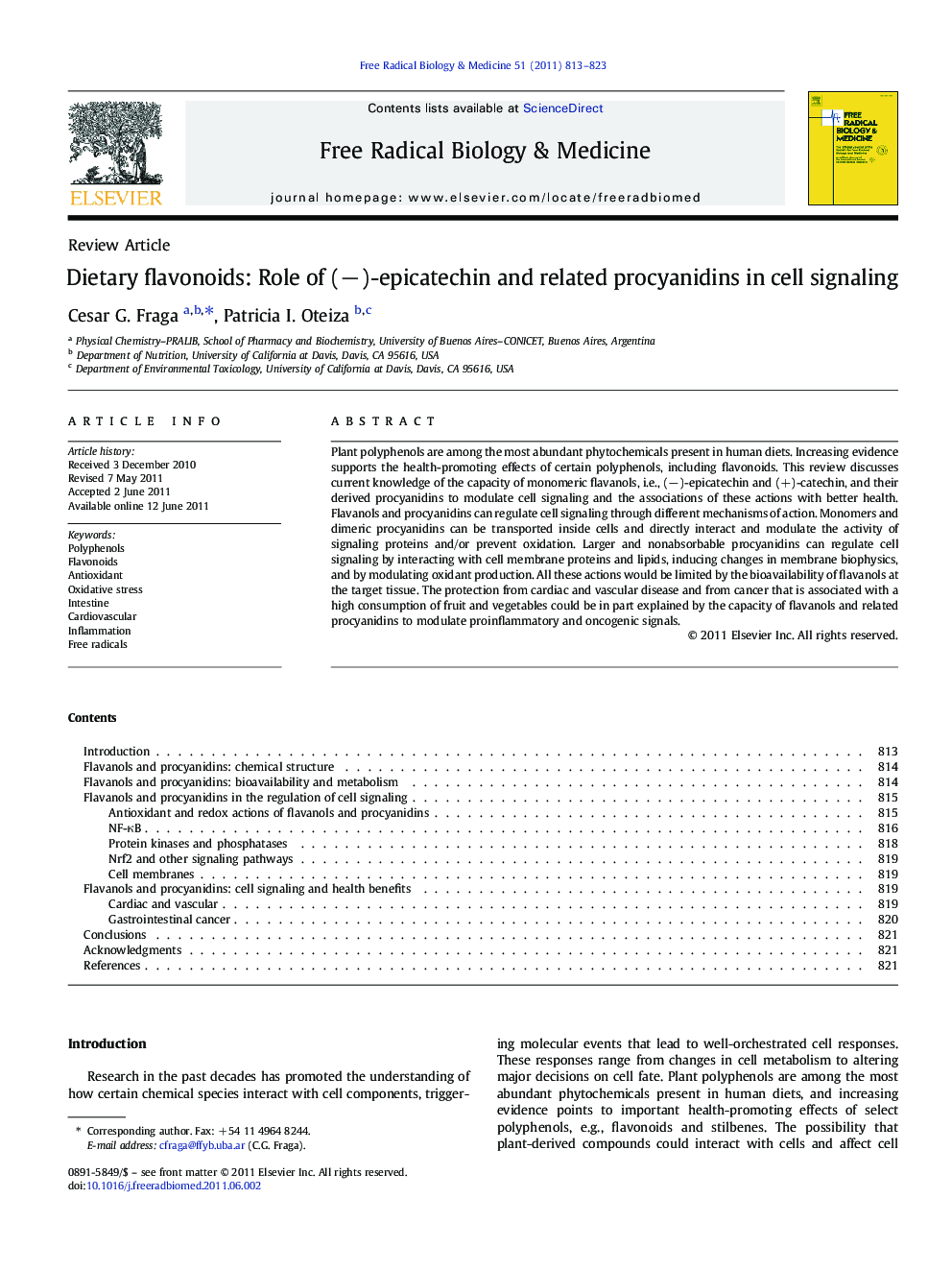| کد مقاله | کد نشریه | سال انتشار | مقاله انگلیسی | نسخه تمام متن |
|---|---|---|---|---|
| 10738450 | 1046706 | 2011 | 11 صفحه PDF | دانلود رایگان |
عنوان انگلیسی مقاله ISI
Dietary flavonoids: Role of (â)-epicatechin and related procyanidins in cell signaling
دانلود مقاله + سفارش ترجمه
دانلود مقاله ISI انگلیسی
رایگان برای ایرانیان
کلمات کلیدی
موضوعات مرتبط
علوم زیستی و بیوفناوری
بیوشیمی، ژنتیک و زیست شناسی مولکولی
سالمندی
پیش نمایش صفحه اول مقاله

چکیده انگلیسی
Plant polyphenols are among the most abundant phytochemicals present in human diets. Increasing evidence supports the health-promoting effects of certain polyphenols, including flavonoids. This review discusses current knowledge of the capacity of monomeric flavanols, i.e., (â)-epicatechin and (+)-catechin, and their derived procyanidins to modulate cell signaling and the associations of these actions with better health. Flavanols and procyanidins can regulate cell signaling through different mechanisms of action. Monomers and dimeric procyanidins can be transported inside cells and directly interact and modulate the activity of signaling proteins and/or prevent oxidation. Larger and nonabsorbable procyanidins can regulate cell signaling by interacting with cell membrane proteins and lipids, inducing changes in membrane biophysics, and by modulating oxidant production. All these actions would be limited by the bioavailability of flavanols at the target tissue. The protection from cardiac and vascular disease and from cancer that is associated with a high consumption of fruit and vegetables could be in part explained by the capacity of flavanols and related procyanidins to modulate proinflammatory and oncogenic signals.
ناشر
Database: Elsevier - ScienceDirect (ساینس دایرکت)
Journal: Free Radical Biology and Medicine - Volume 51, Issue 4, 15 August 2011, Pages 813-823
Journal: Free Radical Biology and Medicine - Volume 51, Issue 4, 15 August 2011, Pages 813-823
نویسندگان
Cesar G. Fraga, Patricia I. Oteiza,